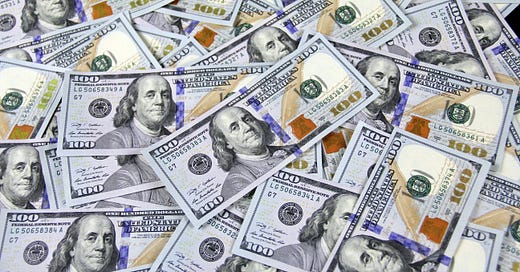Tl;dr
You pay expenses with cash flow, not appreciation.
The cash flow real estate can generate is liquid, appreciation is not (with exceptions).
You more confidence in predicting cash flow than market appreciation.
Real estate investment is a long term endeavor. You need to first hit a bunch of singles and doubles before trying to swing for the fences if you want to give yourself the best chance to succeed. As an early-ish career real estate investor, I tend to be a cash flow guy. I need to eat and I can only do that with cash that flows in every month. Last time I checked, the grocery store isn’t interested in taking equity in an apartment complex in exchange for food.

Prioritizing Cash Flow Lowers Risk
There's generally two investing strategies when it comes to real estate - cash flow and appreciation. And there's two types of appreciation - market and forced. Market appreciation is based on the broader market demand in your area and happens when cap rates go down. Forced appreciation is your ability to increase your property's net operating income (NOI), which is used in combination with the market cap rate to determine value (NOI ÷ cap rate = value).
For an early career real estate investor, prioritizing cash flow over market appreciation usually makes the most sense from a risk perspective. Cash flow is typically an easier thing to predict than changes in the market cap rate (aka a fool’s errand). All investors should be focused on forcing appreciation through adding value (i.e. increasing NOI) in some way, but this is not always possible to a significant degree. And it may not be the right choice for a real estate newbie learning the ropes. Adding significant value to a property has inherent risks in the assumptions that need to be made to determine future value.
Here's a few reasons why cash flow is less risky than speculating on cap rate compression:
You have more confidence in predicting a property's cash flow than guessing what the market says a property is going to be worth in the future.
You can generally control your income/expenses (but not always - hello Covid). You cannot control the broader market, which determines your property's value (cap rates).
You need actual cash to pay your expenses. If you can’t pay your bills, it doesn’t matter how much your property has appreciated.
Cash flow allows you to build resources over time to buy more properties. Slow and steady wins the race. Except for that guy that went from $8,000 to $5 billion with Shiba Inu coin in a year.

More Cash Flow → Greater Risk Appetite → Higher Returns (Usually)
Once you have built up a good sized portfolio that is giving a nice chunk of cash flow each month, you will then have the ability to take more risk in order to swing for the fences. This means buying properties that have the potential for significant appreciation in the future through significant value add (NOI increase) or if you are the gambling type, through potential cap rate compression.
Over the long haul, a diverse portfolio of some high cash flow properties and some that have the potential to give significant long term growth through appreciation is your best bet.
If you liked this article, please go to the nearest street corner and tell everyone that passes by to subscribe and to follow me on Twitter because there is no one else talking about real estate on the internet.



